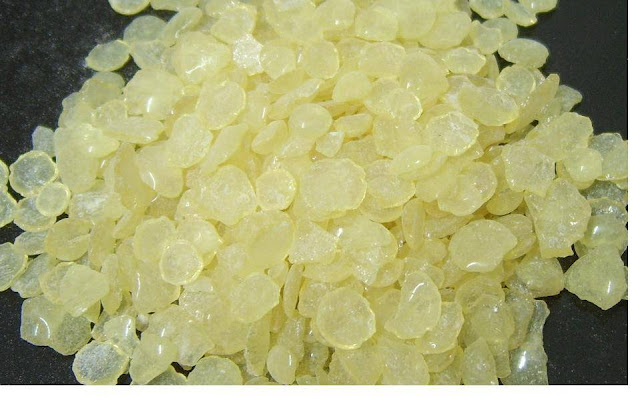Petroleum Resins; Low Molecular Weight Thermoplastic Hydrocarbon Resins Used In Various End-Use Industries
Petroleum
resin is a term in common use for low molecular weight thermoplastic hydrocarbon
resins derived from cracked petroleum fractions. These resins are a by-product
of oil refining. Petroleum resins usually have a pacifying effect and are
suitable for use in paints and varnishes, printing ink, coatings, lithographic
inks, adhesives, paper, rubber, concrete-curing compounds, and other areas where
tackiness is required. It is available in the form of a solid block, powder,
crushed nuggets, beads, flakes, solution, and dispersions forms.
Petroleum
resins are a result of crude oil being converted into materials. There are
various kinds of petroleum resins available today. Some of the common
components in petroleum jelly and marbles are PABA (Para-Bates Acetate),
methylated spirits, paraffin wax, mineral oil, calcium silicates, and more.
These resins are very useful for many industrial applications apart from oil
refineries and plastics. They are used in end-use industries, such as construction,
automotive, and consumer goods, among others.
Moreover, there is an
increasing demand for Petroleum
Resins Market containing low
volatile organic compounds (VOCs) due to stringent government regulations on
VOCs emissions. VOCs from vehicles are a significant contributor to Mexico's
pollution, as the precursor to ambient ozone and secondary particulate matter. VOCs
from gasoline evaporation was determined in Mexico to know the emission of each
compound to the atmosphere. Mexico has implemented a number of LMPs for fixed
source emissions from specific industries.
Since
petroleum resins are safe to use, they are widely used in various end-use
industries for a number of applications. In addition, they are also used for
surface coating in petroleum-based fluids such as hydraulic fluid, diesel fuel,
transmission fluid, and water used for dishwashing and cleaning. Petroleum
Resins are preferred over other materials and inks because they have excellent
water resistance properties, which make them usable even in extreme
temperatures, extreme pressures, and high humidity conditions. Therefore, there
is an increase in demand for petroleum resins across the world.




Comments
Post a Comment